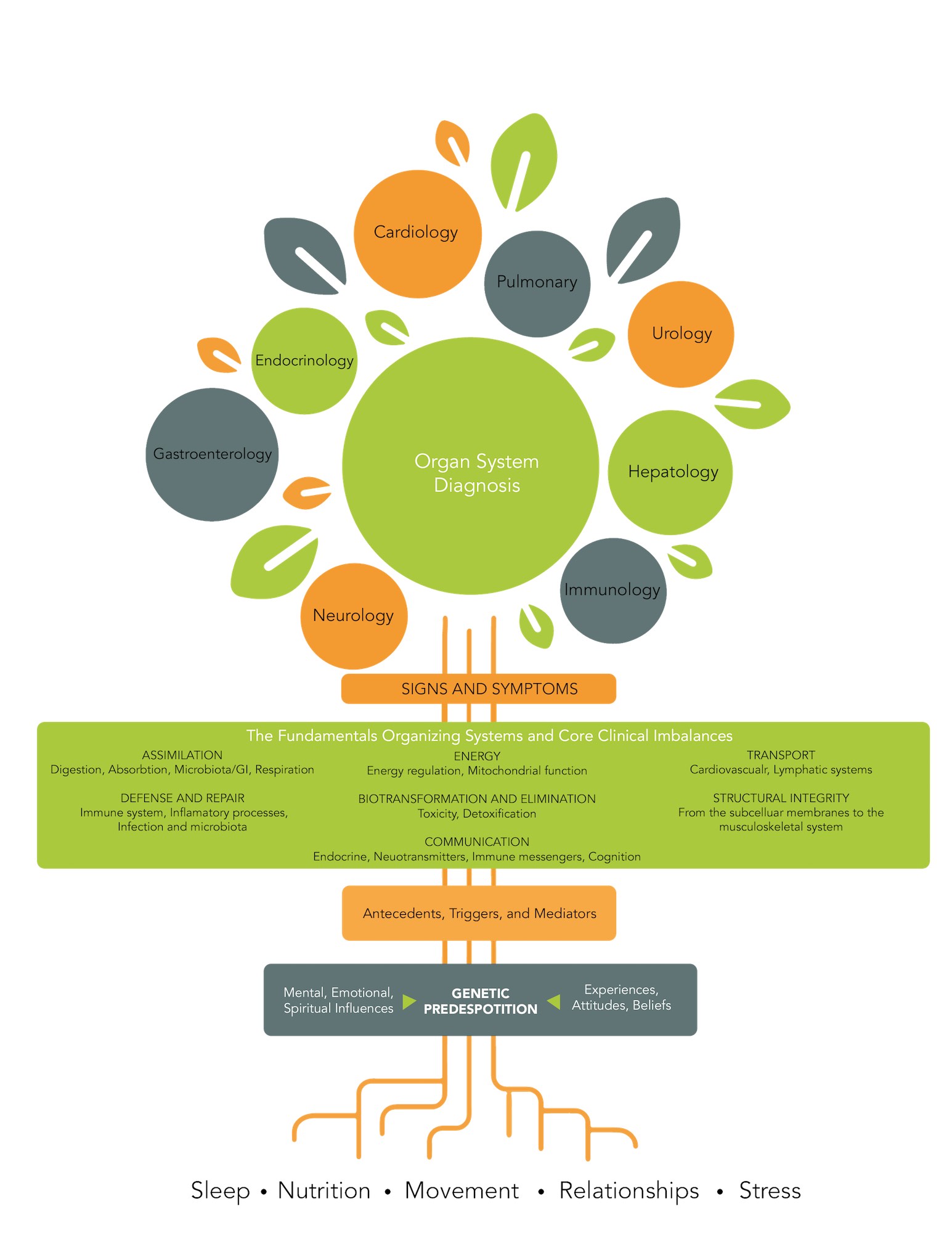LifeScience Institute
An official IFM educational partner in Southeast Asia
ABOUT FUNCTIONAL MEDICINE
Functional Medicine determines how and why illness occurs and restores health by addressing the root causes of disease for each individual.
It requires a detailed and deeper understanding of each patient’s genetic, biochemical, and lifestyle factors and leverages that data to direct personalized treatment plans that lead to improved patient outcomes. Functional Medicine treatment targets specific manifestations of disease in each individual.

About the Institute for Functional Medicine (IFM)
The Global Leader in Functional Medicine
Since its founding in 1991, The Institute for Functional Medicine has trained clinicians to translate scientific advances in the areas of genomics, epigenetics, nutrition, and lifestyle into solutions for notoriously challenging clinical problems.
IFM’s educational programs are led by a diverse set of educators with areas of expertise that include the microbiome, genomic medicine, clinical nutrition, and lifestyle change. Drawn from the leaders in the arenas of clinical practice, education, and research, each educator has years of experience practicing Functional Medicine.
“The science behind chronic illness calls for a focus not on the average,
but on the individual.
Precisely because every one of us is, in fact, unique,
an operating model that treats us as average can’t possibly be effective.”
Jeffrey Bland, PHD
Author of The Disease Delusion
History of Functional Medicine
Over the past 25 years, the prescience of this vision has become increasingly apparent. Leading scientists and clinicians have taken up the challenge of researching and developing applications for genomic (personalized) medicine, and the field has been growing rapidly. The emerging science about the origins of disease has validated the broad principles of Functional Medicine by convincingly demonstrating the critical influence of epigenetic factors—including diet and nutrition, environmental toxins, and lifestyle choices—on the development of chronic diseases. IFM honors these reputed scientists and clinicians by presenting the annual Linus Pauling Award in Functional Medicine.
While many of today’s tools were not yet available in 1991, IFM was already focused on using this emerging knowledge to adapt therapies to the patient (rather than the reverse) by training clinicians to examine the genetic and epigenetic factors for each patient and to develop an individualized therapeutic approach that addresses these underlying factors.
The result is an ever-evolving, cutting-edge, systems-biology approach to health that treats each patient as a whole person. No longer is the patient seen purely through the lens of a dysfunctional organ system, a disease, or a syndrome, but instead as a person who can be helped on the path to optimal wellness. By evaluating a matrix of fundamental causes in the diagnostic and therapeutic process, we can more accurately understand the roots of pathophysiology, leading to earlier and more effective interventions that not only extend lives but also give patients back years of good living.
IFM is more determined than ever to help clinicians and patients alike develop the nutritional, environmental, social, and lifestyle strategies that, over time, will move us away from reacting to the chronic disease epidemic and toward a preventive, patient-empowered healthcare system focused on optimum wellness, not just freedom from symptoms. As long as the world pours most of its resources into post-diagnosis, pharmaceutical-based care, we shall not fully succeed in this great task. IFM seeks your help in our mission of making Functional Medicine the standard of care worldwide.


